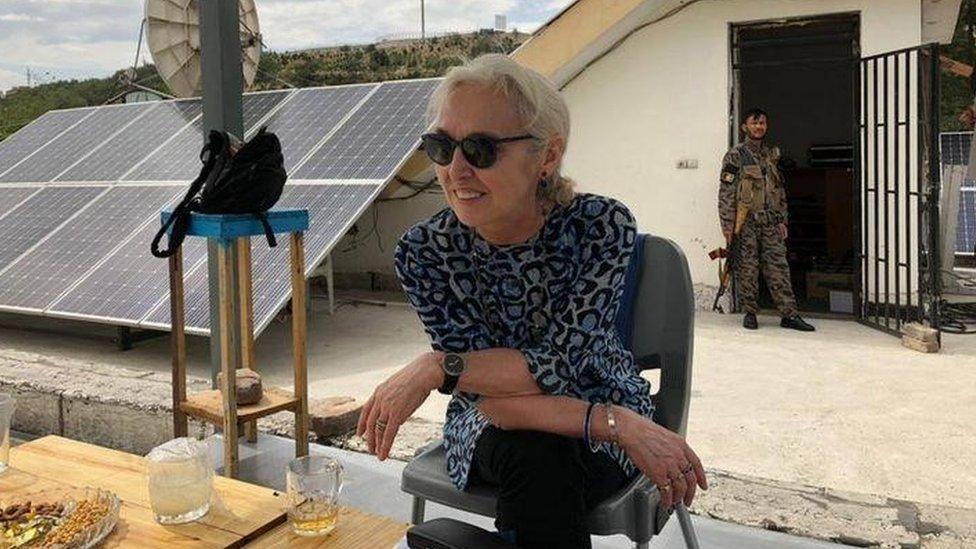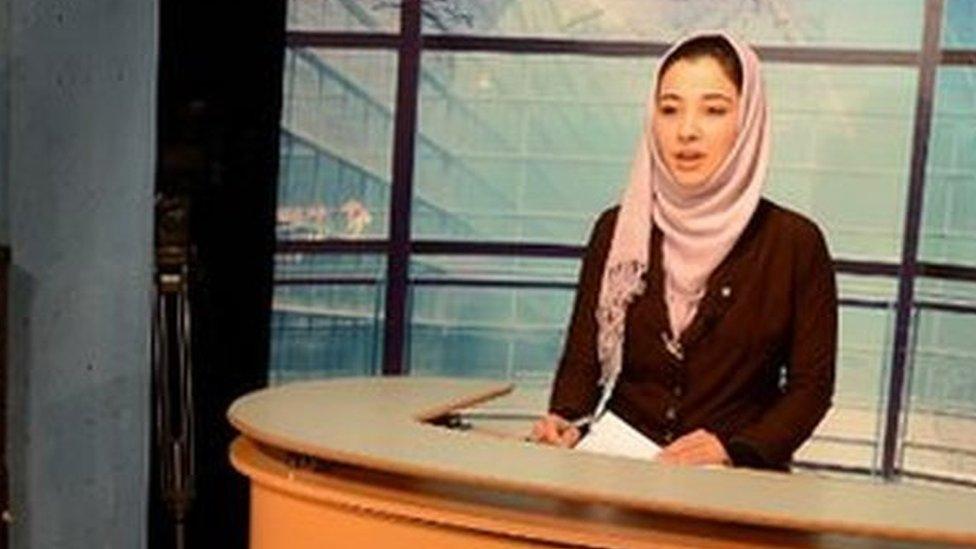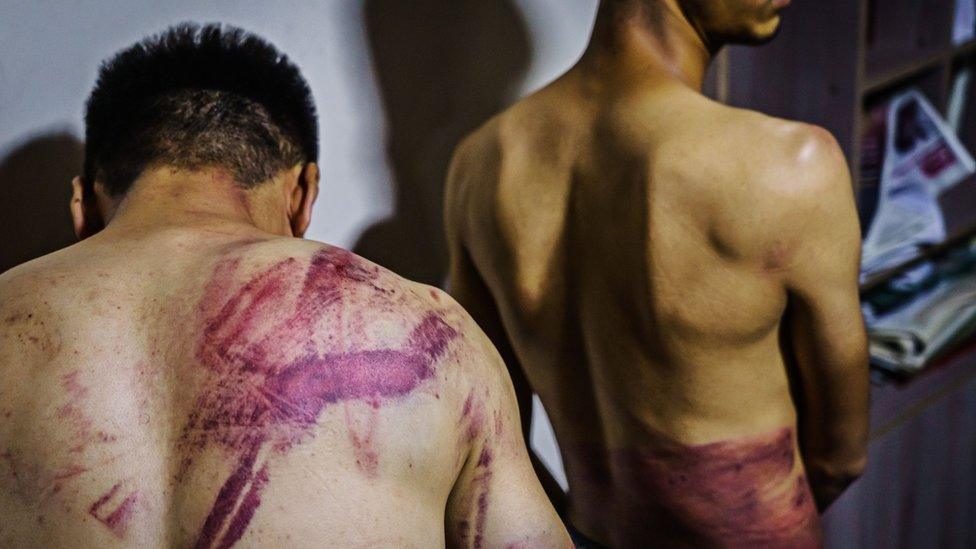Lynne O'Donnell: Taliban detained, abused and threatened me
- Published

Lynne O'Donnell worked as a reporter in Afghanistan for many years
An Australian journalist says she was forced to publicly retract some of her reports about Afghanistan after being threatened with prison by the Taliban.
Lynne O'Donnell, a columnist for Foreign Policy magazine, alleges that she was detained, abused and forced to post a series of tweets stating her articles were false.
She has since left Afghanistan.
The Taliban confirmed they had detained Ms O'Donnell and claimed she had falsified reports.
Afghanistan has become an increasingly hostile place for journalists, with the current regime cracking down on press freedoms, Human Rights Watch says, external.
Since regaining power last year, the Taliban have also been tightening restrictions on women. They are banned from travelling without a male guardian and secondary schools are shut for girls.
Speaking to the BBC after the ordeal, Ms O'Donnell said she had travelled to Kabul to see how the country had changed since she left almost a year ago.
"I went in good faith," she said, adding that she had gone straight to the foreign ministry when she had arrived on Sunday to declare that she was in the country as a foreign correspondent - a requirement of the regime.
But not long afterwards, a three-day game of cat-and-mouse with the Taliban ensued, during which she was "detained, abused and threatened", she wrote in a Foreign Policy article, external about her experience.
She said she was accused of "breaking their laws" and "offending Afghan culture," with the Taliban claiming articles she had written - including one about LGBTQ+ people in Afghanistan and another on the forced marriage practices of Taliban militants - were lies.
Ms O'Donnell - former bureau chief for news agencies AFP and AP in Afghanistan - stands by her reporting.
She said the Taliban had asked her to reveal her sources for these articles. But she had refused.
The Taliban foreign ministry said Ms O'Donnell was not asked to reveal her sources, but said she had failed to produce any proof which showed she had not fabricated the reports.
Ms O'Donnell said that after refusing the Taliban's requests, she was then forced to tweet an apology or face prison.
Allow X content?
This article contains content provided by X. We ask for your permission before anything is loaded, as they may be using cookies and other technologies. You may want to read X’s cookie policy, external and privacy policy, external before accepting. To view this content choose ‘accept and continue’.
She added that she was also made to film a video stating that she had not been coerced into writing the tweets.
"They were bullies. I'd be lying if I said that I wasn't afraid to some extent. But I wasn't terrified," she told the BBC.
She was later released and was allowed to board a plane out of the country.
Speaking about her decision to go back to Afghanistan, she said: "I knew that I was taking a risk in going there: they lock up, they abuse, they beat, they kill journalists who are Afghans. They have a history of taking foreigners hostage to use as leverage. I didn't know that that wouldn't happen to me."
She added that she would not be returning to Afghanistan as it would be "reckless" to do so.
But writing in Foreign Policy, she said she would not stop watching or caring.
You may also be interested in:
Women in Afghanistan face an uncertain future following the Taliban's takeover
Related topics
- Published19 May 2022

- Published9 September 2021
